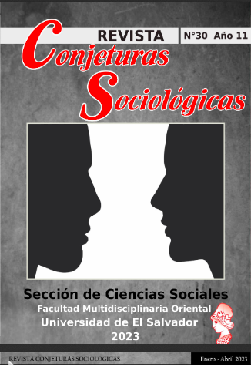Estratificación en la academia, el caso de la Universidad de Guadalajara
Palabras clave:
Educación superior, Estratificación, Academia, Profesores, UniversidadResumen
Las instituciones de educación superior y la profesión académica han sido tocadas por la vorágine globalizadora y sus efectos, las políticas de modernización implicaron cambios en el quehacer institucional y académico a través de políticas y programas de evaluación, estímulos y recompensas, lo que ha puesto en lo más alto de la valoración las actividades de investigación, por ende, las instituciones y profesores que se centran en esta actividad, son los mejor evaluados en estos programas, posicionándolos en la cúspide de la pirámide de la educación terciaria; generando una estratificación no solo institucional, sino entre los profesores, diferenciando a la base piramidal o las mayorías como aquéllos que no son de élite y por centrarse en la docencia, no pueden obtener más y mejores recursos. Se requiere un cambio de paradigma en la valoración académica, donde las funciones de docencia e investigación sean puestas en la misma balanza para un desarrollo holístico y justo de la universidad en pro de la sociedad
Descargas
Referencias
Altbach, P.G., Reisberg, L., & Rumbley, L. E. (2016). Tracking a Global Academic Revolution. In P. G. Altbach. Global Perspectives on Higher Education. Baltimore: Johns Hopkins University Press. pp. 15-28. (2)
Altbach, P.G. (2016). The logic of Mass Higher Education. In P. G. Altbach. Global Perspectives on Higher Education. Baltimore: Johns Hopkins University Press. Pp. 48- 72. (3)
Altbach, P. G., Reisberg, L. and De Wit, H. (Eds.). 2017. Responding to massification: differentiation in postsecondary education worldwide. Körber Foundation/Hamburg Transnational University Leadership Council, Bonn, pp. 9-13, 14-23 and 158-164
Altbach, P. G. (2016). Globalization and the Universities: Realities in an Unequal World. In P. G. Altbach. Global Perspectives on Higher Education. Baltimore: Johns Hopkins University Press. Pp.81-104. (6)
Altbach, P.G. (2016). The University as Center and Periphery. In P. G. Altbach, Global Perspectives on Higher Education. Baltimore: Johns Hopkins University Press. pp. 149-171. (7)
Altbach, P. G. (2016). The Globalization of Rankings. In P. G. Altbach. Global Perspectives on Higher Education. Baltimore: Johns Hopkins University Press. pp. 130-139. (9)
Altbach, P. G., Reisberg, L., & Rumbley, L. E. (2010). Teaching, learning and assessment. In Trends in global higher education: Tracking an academic revolution. Rotterdam, the Netherlands: Sense Publishers. pp. 111-122. (11)
Altbach, P. G., Reisberg, L., & Rumbley, L. E. (2010). The centrality and crisis of the academic profession. In Trends in global higher education: Tracking an academic revolution. Rotterdam, the Netherlands: Sense Publishers. pp. 85-90. (24)
Altbach, P. G., Reisberg, L. & Rumbley, L. E. (2010). Financing Higher Education. In Trends in Global Higher Education: Tracking an Academic Revolution. Rotterdam: Sense Publishers. pp. 65-74. (18)
Ben-David, J. & Zloczower, A. (1962). Universities and Academic Systems in Modern Societies, European Journal of Sociology 3, pp. 45-84. (4)
Bernasconi, A. (2008). Is there a Latin American model of the university? Comparative Education Review, 52(1). pp. 27-52. (30)
Enders, J. (2006). The academic profession. In Forest, J. and Altbach, P. G. (Eds.). International handbook of higher education. Dordrecht, the Netherlands: Springer. pp. 5-22.
Grediaga Kuri, R. (2001). Retos y condiciones de desarrollo la profesión académica en México en la última década. Revista Mexicana de Investigación Educativa, 15, 95–117.
Hazelkorn, E. (2011). Globalization and the reputation race. In Rankings and the reshaping of higher education: The battle for world-class. Basingstok, UK: Palgrave MacMillan. pp. 6-38.
Leask, B. (2015). Why Internationalize the Curriculum? In Internationalization of the Curriculum. London: Routledge. pp. 16-25.
Merton, R. K. (1973). The sociology of science. Theoretical and empirical investigations. (1st ed.). Chicago. EUA: University of Chicago Press.
Moreno, C. I. (2017). Las reformas en la educación superior pública en México: rupturas y continuidades. Revista de la Educación Superior, 46 (182). pp. 27-44. (32)
Salmi, J. 2017. The contribution of tertiary education. In J. Salmi, The Tertiary Education Imperative. Boston: Sense Publishers. pp. 31- 69. (1)
Salmi, J. (2009). The challenge of establishing world-class universities. In J. Sadlak and N. Liu (Eds.) The world-class university as part of a new higher education paradigm. Cluj, Romania: Cluj University Press. pp. 23-68. (8)
Sandel, M. (2020). The sorting machine. In the Tyranny of merit: What´s become of the common good? (pp. 55-68). (12)
Universidad de Guadalajara. (2022). Coordinación General de Planeación y evaluación . Obtenido de Numeralia: https://cgpe.udg.mx/informacion-institucional/numeralia-institucional
Universidad de Guadalajara. (2022). Estatuto del personal académico de la Universidad de Guadalajara. Obtenido de https://secgral.udg.mx/sites/default/files/Normatividad_general/EPA%20%28Abril%202022%29.pdf#:~:text=El%20presente%20Estatuto%20regula%20las,de%20Guadalajara%20y%20su%20Reglamento.
Vinck, D. (2014). Ciencias y sociedad. Sociología del trabajo científico. Argentina: Gedisa
Publicado
Número
Sección
Licencia

Esta obra está bajo una licencia internacional Creative Commons Atribución-NoComercial 4.0.
Los autores continúan como propietarios de sus trabajos, cediendo de manera no exclusiva los derechos de difusión a la Revista Conjeturas Sociológicas bajo los estándares de la Licencia Creative Commons Atribución No Comercial 4.0 Internacional (CC BY NC 4.0).





